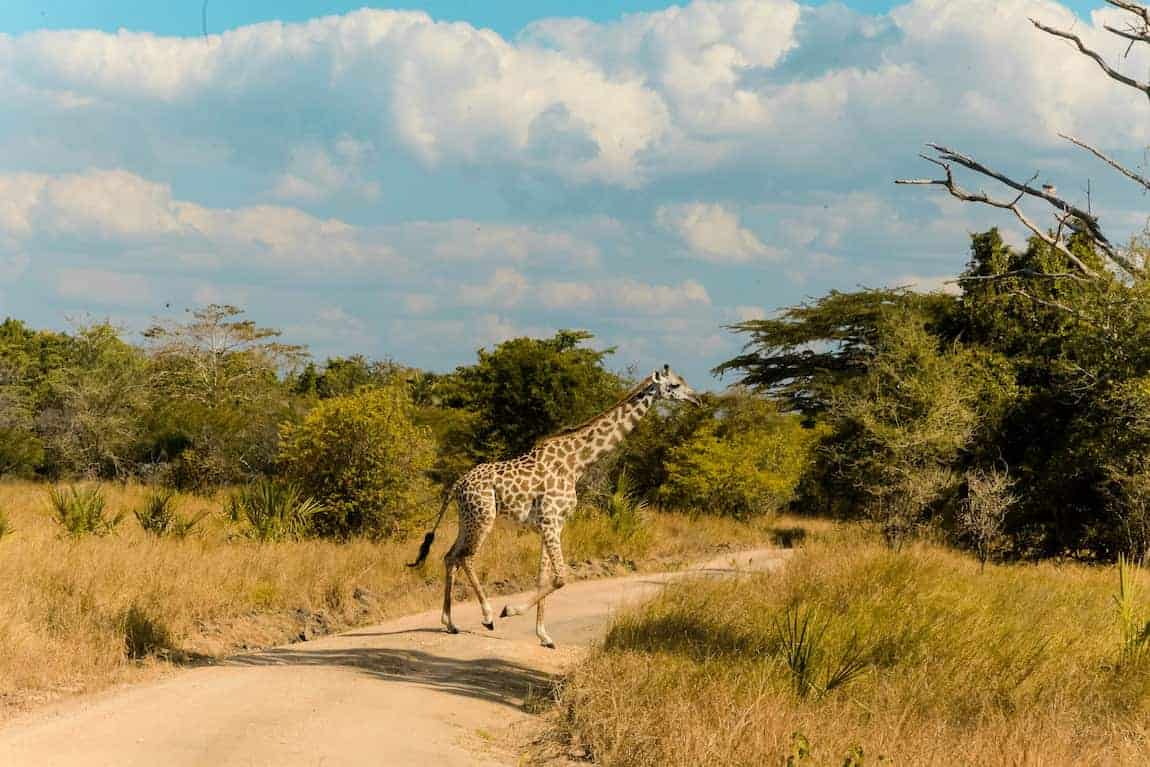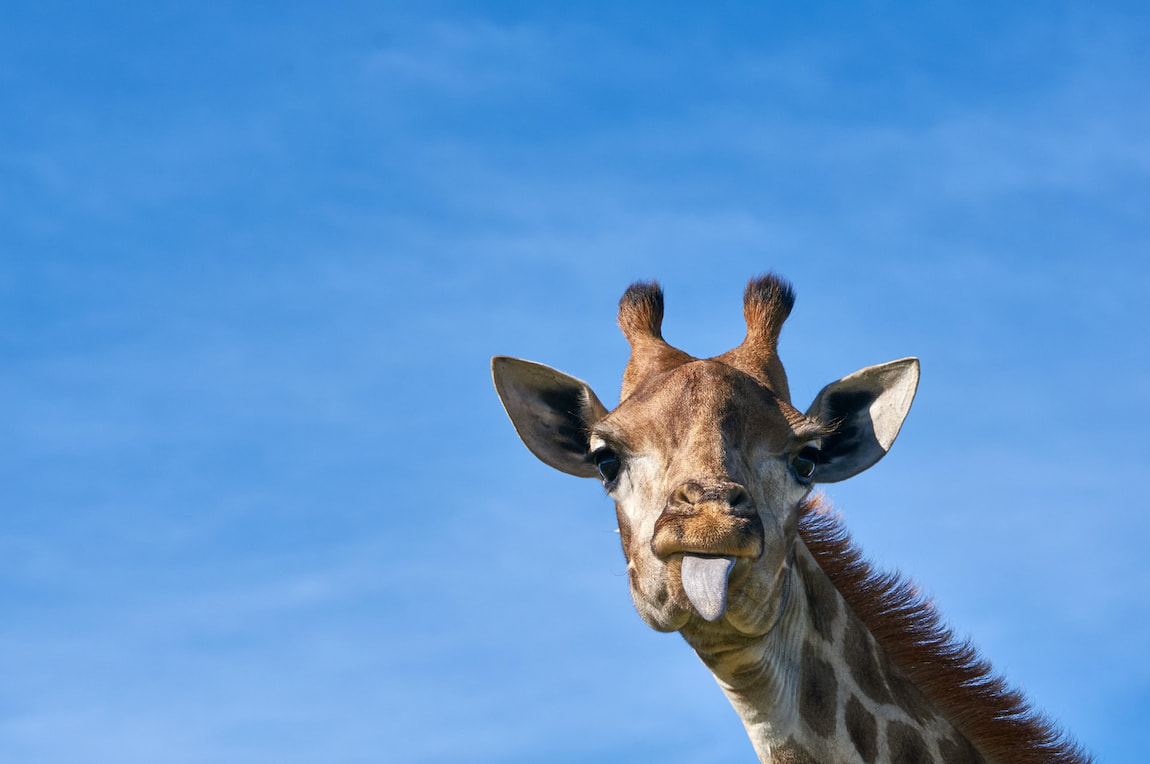Giraffes are some of the most fascinating creatures in the animal kingdom, and their sleeping patterns are no exception. Despite their impressive height and distinct appearance, very little is known about how much sleep giraffes need each day. In this article, we will explore the unique sleeping habits of giraffes, the science behind their sleep patterns, and how sleep affects their daily life.
Understanding Giraffe Sleep Patterns
Giraffes, like most mammals, sleep in cycles. However, their sleep patterns differ from other animals in some interesting ways. For starters, giraffes sleep less than other mammals. On average, they sleep between 4-6 hours per day, and they often split their sleep up into multiple naps that last anywhere from a few minutes to a few hours.
Despite sleeping less than other mammals, giraffes are able to function just fine on their limited sleep schedule. This is because they have adapted to their environment and developed unique sleeping habits that allow them to get the rest they need without putting themselves in danger.
The Unique Sleeping Habits of Giraffes
One of the most fascinating things about giraffe sleep is that they often sleep standing up. This is because their long legs make it difficult for them to sit or lay down comfortably for long periods of time. Additionally, their necks are vulnerable to attack from predators when they are lying down. So, giraffes have adapted to sleep standing up, with one eye open and one ear poised for danger.
When giraffes sleep standing up, they enter a state of sleep called slow-wave sleep. During this type of sleep, their muscles relax and their heart rate slows down. However, they are still able to quickly wake up if they sense any danger.
That being said, giraffes do occasionally lay down to sleep. When they do, they often bend their long necks to rest their heads on their hindquarters. This position allows them to get some much-needed rest without putting themselves in harm’s way.
Factors Affecting Giraffe Sleep
There are several factors that can affect how much sleep a giraffe gets each day. One of the biggest factors is their environment. Giraffes that live in areas with high predator populations may sleep less than those who live in safer areas. Additionally, changes in their diet, activity levels, and social interactions can also impact their sleep patterns.
Interestingly, giraffes are able to go for long periods of time without sleep if necessary. This is because they have developed a unique ability to sleep with only one half of their brain at a time. This allows them to remain alert and aware of their surroundings while still getting some much-needed rest.
Overall, giraffes have some truly fascinating sleep patterns that have allowed them to survive and thrive in their unique environment. From sleeping standing up to being able to go without sleep for long periods of time, these majestic creatures have developed some truly remarkable adaptations to help them get the rest they need.
Comparing Giraffe Sleep to Other Animals
Sleep Duration in Different Mammals
Giraffes sleep less than many other mammals, including humans. Humans typically need between 7-9 hours of sleep each day to function properly, while giraffes get by on only 4-6 hours. However, some other animals sleep even less than giraffes. For example, elephants and horses, two other large herbivores, sleep for only 3-4 hours per day.
It’s interesting to note that some small mammals, such as mice and bats, sleep for up to 20 hours per day. This is due to their high metabolic rates, which require them to rest for extended periods of time in order to conserve energy.
How Giraffe Sleep Differs from Other Herbivores
Giraffes are also unique in their sleep patterns when compared to other herbivores. For example, cows spend the majority of their day sleeping, and in some cases, they can sleep for up to 14 hours per day. Similarly, sheep and goats often sleep for long periods of time throughout the day.
One reason for this difference in sleep patterns is that giraffes are prey animals, and therefore need to be alert and aware of their surroundings at all times. They have adapted to sleep in short bursts throughout the day and night, rather than in one long stretch.
Another interesting fact about giraffe sleep is that they often sleep standing up. This is due to their anatomy, which makes it difficult for them to lie down and get back up quickly in case of danger. Instead, they rest their heads on their backs and doze off while standing.
The Science Behind Giraffe Sleep
The Role of the Giraffe’s Brain in Sleep
The science behind giraffe sleep is still largely unknown, but researchers have discovered some interesting things about the giraffe brain during sleep. For example, during REM sleep, the part of the brain that controls balance and coordination is active in giraffes. This suggests that giraffes may be able to “sleepwalk” while they are sleeping standing up.
Additionally, studies have shown that giraffes have a unique sleep pattern compared to other mammals. They have been observed sleeping for only a few minutes at a time, often in short naps throughout the day and night. This may be due to the need to constantly be on the lookout for predators in the wild.
The Importance of REM Sleep for Giraffes
REM sleep is a crucial part of sleep for all mammals, and giraffes are no exception. During REM sleep, the brain processes and consolidates memories, regulates emotions, and repairs damaged tissues. Without enough REM sleep, giraffes may suffer from memory loss, mood swings, and an increased risk of injury and illness.
Interestingly, giraffes have been observed sleeping with their eyes open, which may be an adaptation to their environment. By keeping their eyes open, they are able to quickly detect any potential threats while still getting the rest they need.
The Effect of Captivity on Giraffe Sleep
Giraffes in captivity may have different sleep patterns than those in the wild. Studies have shown that captive giraffes may experience more fragmented sleep and spend less time in REM sleep compared to their wild counterparts. This could be due to a lack of stimulation and the inability to engage in natural behaviors, such as foraging and socializing.
It is important for zoos and other facilities to provide an environment that allows giraffes to engage in natural behaviors and get the sleep they need to stay healthy and happy.
How Giraffe Sleep Affects Their Daily Life
Sleep and Giraffe Social Behavior
Giraffes are social animals that live in groups, and their sleep patterns can impact their social behavior. For example, giraffes often sleep in groups, with one or two animals keeping watch while the others sleep. This helps to keep the group safe from predators and ensures that every member of the group gets enough sleep.
When giraffes sleep, they often curl their necks and tuck their heads into their bodies, resembling a ball. This position allows them to rest their neck muscles, which are used to support their long necks when they are standing. Giraffes can sleep standing up or lying down, and they often alternate between the two positions throughout the day and night.
In addition to sleeping in groups, giraffes also have a unique way of communicating with each other while they sleep. They make a low humming sound, which is believed to help them stay connected with their herd and alert them to any potential danger. This humming sound is barely audible to humans, but it is an important part of giraffe social behavior.
The Impact of Sleep on Giraffe Health and Longevity
Like all animals, sleep plays an important role in the health and longevity of giraffes. Without enough sleep, giraffes may suffer from fatigue, memory loss, mood swings, and an increased risk of injury and illness. On the other hand, getting enough sleep can help giraffes stay alert and healthy, increase their lifespan, and improve their chances of reproducing successfully.
Giraffes typically sleep for about 4.6 hours per day, with most of that time being spent in short naps that last only a few minutes each. These naps allow giraffes to rest and recharge throughout the day, without leaving themselves vulnerable to predators for extended periods of time.
Interestingly, giraffes have a higher tolerance for sleep deprivation than many other animals. In one study, giraffes were deprived of sleep for up to nine days, and they showed no ill effects. However, it is important to note that this type of sleep deprivation is not natural for giraffes, and it is not recommended as a way to test their limits.
In conclusion, sleep is an essential part of giraffe daily life, affecting their social behavior, health, and longevity. By understanding the unique sleep patterns and behaviors of giraffes, we can better appreciate these fascinating animals and work to protect them in the wild.
The Evolution of Giraffe Sleep Patterns
How Giraffe Sleep Has Adapted Over Time
Like all animals, giraffes have evolved over time to adapt to their environment. This includes their sleep patterns. Giraffes have developed the ability to sleep standing up, which allows them to get some rest while protecting themselves from predators. Additionally, their short sleep cycles and frequent naps allow them to stay alert and responsive to changes in their environment.
The Connection Between Sleep and Giraffe Survival
Overall, sleep plays a crucial role in the survival and well-being of giraffes. Without enough sleep, giraffes may be more vulnerable to predators and less able to navigate their environment effectively. However, with the right amount of sleep, giraffes are able to stay alert and healthy, increasing their chances of survival and ensuring the continued success of their species.
Conclusion
So, how much sleep do giraffes need each day? The answer is not simple, as giraffes have unique sleep patterns that vary depending on their environment, diet, and social interactions. However, we do know that giraffes need less sleep than many other mammals, and they have adapted to sleep standing up to protect themselves from danger. Despite their short sleep cycles, giraffes are able to stay alert and healthy, thanks to their unique sleep patterns and the crucial role that sleep plays in their survival.




